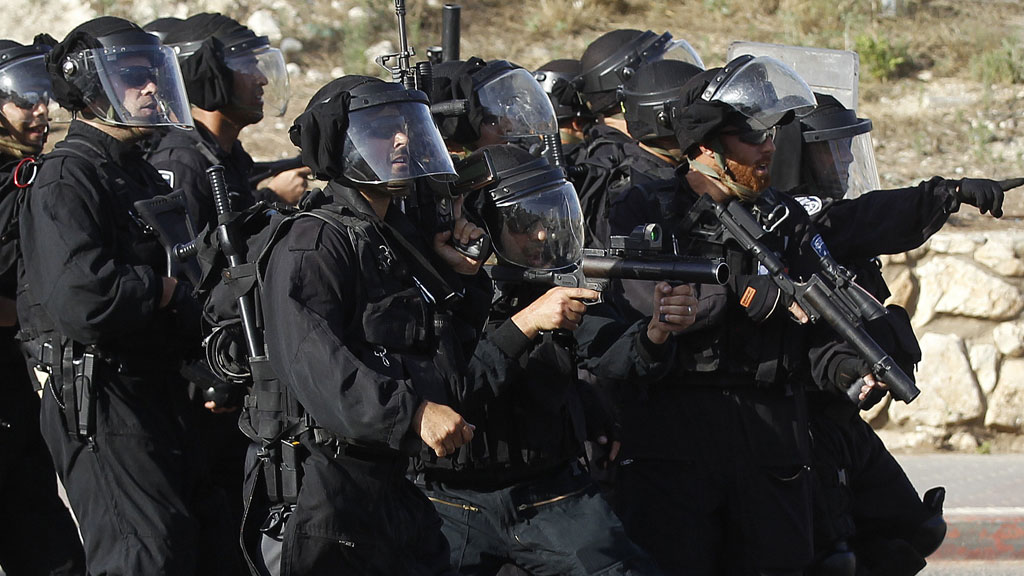Israel and its foes: Hamas, Hezbollah and IS
After the killings of three Israeli teenagers, Binyamin Netanyahu says “Hamas will pay”, while Hamas says an attack by Israel “will open the gates of hell”. So what happens next?

The Israeli/Palestinian conflict – and the failure of both sides to reach a peace agreement – had to some extent fallen off the news radar until the kidnappings of Gilad Shaar, Eyal Yifrach and Naftali Frenkel in the West Bank.
Events in Syria and Iraq and the rise of Isis (now renamed IS) have been more closely watched, but the teenagers’ deaths put Israel and Hamas in the spotlight again.
Israel blames Hamas, now part of a Palestinian unity government, for the deaths. Hamas denies this, but a military reponse from the Israelis is expected: the only question is how big it will be.
‘Tough response’
Professor Yossi Mekelberg, an associate fellow at the Chatham House think tank in London, told Channel 4 News the Israeli government felt a “tough response” was needed.
He said that although the alleged killers of the teenagers, Ayoub al-Kawasma and Abu Aisheh, were members of Hamas, Israel had not provided any proof that they had been ordered to carry out the attacks.
“Can Israel assure us that someone in the upper echelons sanctioned it? I don’t think there is evidence for that, but evidence would be very serious. It would deligitimise Hamas as a political power. I would like to see Hamas condemn it, but it does not mean they’re to blame for it.
“There’s no doubt the Israeli government will try to implicate Hamas. It wants to deligitimise Hamas at the moment because it’s part of the govenment.”
Targeted strikes
Prof Mekelberg said he expected targeted strikes on Hamas’ military wing – and possibly politicians – but no “boots on the ground”.
Although peace talks are hardly top of the agenda at the moment, he said negotiations between Israel and the Palestinian Authority were vital “or extremists can always hijack the agenda”.
But he argued that Mr Netanyahu’s government was not doing enough to achieve peace: “The leadership is not interested in peace or capable of reaching a peace agreement. But public opinion will support a peace agreement as long as it’s viable.”
IS (Islamic State) fighters have seized parts of Syria and Iraq, slaughtering those who get in their way and declaring a new Muslim caliphate. Their rapid advance has brought them to within a few miles of the Iraqi/Jordanian border and closer to Israel, whose destruction they would welcome, along with Jerusalem’s absorption into its caliphate.
Last week, Jordan closed its border crossings with Iraq, but Israel is reportedly offering the Hashemite kingdom military aid to help it thwart a possible attack by IS.
‘Biggest threat’
Prof Mekelberg sees IS and other “non-state actors” as the “biggest threat” to Israel – more dangerous foes than conventional armies.
In 2006, Israel fought a bloody war with Hezbollah in Lebanon, which IS wants to include in the caliphate. The Israelis believe Hezbollah, formidable 10 years ago and sworn to its destruction, has strengthened since then.
Recent air strikes are thought to have prevented transfers of rockets from the Assad regime to Hezbollah, but it remains a worry for Israel.
So is there any prospect of an anti-Israeli alliance between Hezbollah and IS? Given that the former is Shia and allied to Iran and the latter Sunni, probably not. In Prof Mekelberg’s words: “The divide between Shias and Sunnis is deeper than the divide with Israel.”
-
Latest news
-
India’s ‘YouTube election’: Influencers enlisted to mobilise youth vote6m

-
Putin denies plans to capture Ukrainian city of Kharkiv3m

-
Plaid Cymru ends co-operation agreement with Welsh Labour government4m

-
Infected blood scandal: Government was warned years before taking action6m

-
Displaced in Gaza have to ‘start from Zero’ many times over, says Gaza NGO director3m

-




